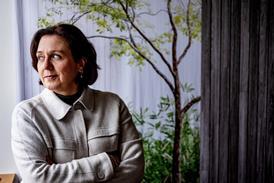
Refinery of the Future
This special edition, produced in collaboration with the consortium ARC CBBC, explores the concept of the “Refinery of the Future”, a crucial yet challenging vision. Would it be possible to build a fully fossil-free refinery that could meet post-2050 demands by employing new feedstocks, new energy sources and new processes? You’ll find answers to this question and much more in this special.
Methane pyrolysis: A balancing act on multiple levels
Researchers from Utrecht, Eindhoven and Delft are teaming up with several industrial partners in a five-year multilateral ARC CBBC project to carry out optimisation at both atomic and reactor scale of methane pyrolysis.
Lees artikelTowards the Refinery of the Future
Defining the future of the chemical industry is a good start, but realizing these visions will prove challenging. We asked Bas de Bruin, Guido Mul and Atsushi Urakawa, all of them PIs within ARC CBBC, to share their ideas on how we can turn that envisioned future into reality.
Functional coatings are the future
If you ask ARC CBBC researchers, future coatings will be able to adapt to light, temperature or chemicals and even be self-healing.
The rise of electrosynthesis
Electrosynthesis is gaining traction as an interesting method to enable sustainable production processes. For example, by creating relevant chemical building blocks from carbohydrates.
Creating colours
Colour is an intriguing phenomenon, as it is truly in the eye of the beholder. To create that sensation of colour, nanometer-scale particles need to be structured in just the right way.
Lees artikelTime for chemistry to change lanes
To keep pace with a rapidly changing world, the chemical industry will have to reinvent itself, says Bert Weckhuysen, scientific director of the ARC CBBC consortium.
Lees artikelA passion for Green Chemistry
When you’re driven by something bigger than yourself, it’s hard to put your work down, says Thomas Freese (32).
‘It is important to know the industrial conditions’
With the end of her PhD track in sight, Sofie Ferwerda explains how she navigates the worlds of academia and industry in her research, which includes a collaboration with BASF.
Becoming a 21st century chemist
Combining transdisciplinary challenge-based education with design thinking creates a unique environment for students to learn skills that will help them navigate sustainability transitions.
Circus
You won’t see editor-in-chief Esther Thole charging down a black slope. But when it comes to mindblowing science, she can stomach steep descents and sharp curves.
Lees artikelElexel: Accelerating electrochemical innovation
Marie Brands just went for it. Driven by her passion for sustainability, she founded Elexel, an independent electrolyzer testing and scale-up service company. Though it is still in its early stages, she dreams big.
Lees artikelImmune cells act like boa constrictors, according to hydrogel study
Researchers at Wageningen University & Research have demonstrated that hydrogel microparticles can be used to measure three-dimensional cell movements. You can read about how to make and use them in their comprehensive publication in Nature Protocols.
Early-career chemists want more trust and less bureaucracy
Last summer, the inaugural Next Generation Leaders in Dutch Chemistry Summit was held at the Lorentz Centre in Leiden. During the five-day event, a group of early-career chemists (NXTGN25) from academia and industry collaborated to develop a shared vision for the future of chemistry in the Netherlands. This resulted in ...
How to stay creative in academia?
Isabelle Kohler reveals the dual system that has kept her ideas flowing: creating deliberate space for the mind to wander through low-key activities and implementing practical capture methods to store ideas when they emerge.
Move over, Matrigel – synthetic medium sets new standard
Matrigel, which is based on tumour tissue from mice, is currently the undisputed leader in the cell culture media market. However, the Nijmegen-based start-up SBMatrices is causing a stir with its fully synthetic, animal-free gel, Fybrix, which provides an equally good environment for cells and delivers consistent results.
Improvements required for CO2 electrolysis with innovative membranes
Special membranes could enable CO2 electrolysis without the need for expensive platinum group metals. However, the membranes are not yet efficient enough for long-term operation.
Waste disposal containers Sharpsafe®
Safe collection and disposal of sharp, hazardous or infected waste becomes easy with the Sharpsafe® waste containers from Msh/Hospidex.
ICCECRICE 2026 connects teachers and researchers
From evidence-informed assessment to ethical AI use: the joint ICCECRICE conference opens its doors to anyone interested in the future of chemistry education. With the explosive growth of AI applications, it is time for a robust exchange between practice and science. Stefania Grecea, Associate Professor at University of Amsterdam and ...





















